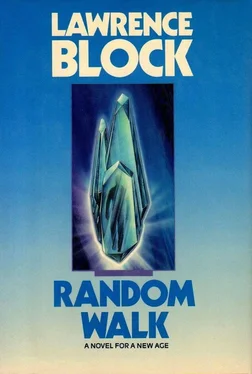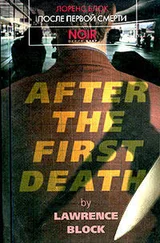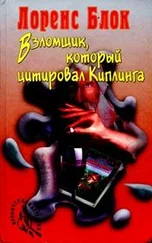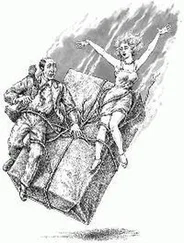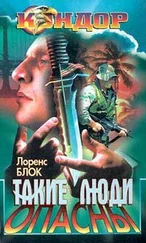“Mame, if we go much further, it’s going to be a long walk back.”
“Les, do you really think I’m going back?”
“I don’t guess you are, not to stay. But isn’t there anything you need to get from the house?”
“Like some cash money and something to wear? There is, but there’s nothing I want enough to go back for it. Les, I don’t even want to look back. I might turn into a pillar of salt. I remember Mary Frances heard that story in Sunday school and thought it was a pillow of salt.”
“You’ll wish you had any kind of a pillow tonight, Mame. We just bed down on bare ground.”
“Walk twenty miles and a body could probably sleep standing up. Les, you can throw that thing away, that walker. Or just leave it by the side of the road. Some old crippled lady might come along and have a use for it.”
There was a long curving uphill stretch to the road, and at the top of the rise you could see a long ways. “There they are,” she said, pointing. “They must have stopped to take in the view.”
“Slowpokes,” he said.
“We’ll catch ’em.”
When someone at the rear of the procession turned and caught sight of the two of them, word passed the length of the column and all of them came back to wait for the pair to catch up. When Mame reached them, walking like a girl, there was a long moment of awed silence. Then, tentatively, someone began to clap. And then everyone was applauding, and it rolled and echoed in the hills like thunder.
The morning after Mame joined them, Guthrie bought an Idaho map at a gas station outside of Vale, and before nightfall they had crossed the Snake into Idaho and made camp outside of Payette. The group had continued to grow — two college students had joined in as they marched through Ontario, Oregon, and a loose-limbed farmhand with a half pint of Mad Dog 20–20 in each of his hip pockets had fallen into step with them shortly after they crossed the state line. Guthrie didn’t have their names straight yet, let alone know what they were about.
He squatted by the fire, studying the new map, and when it burned lower he went off a ways and went on studying it by flashlight. The map was a puzzle, and when he made the mistake of trying to puzzle it out he wound up feeling like a lab rat in an unsolvable maze. The state was all mountains. Except for the Interstate, which did not lend itself to their sort of travel, all of the roads moved in a devious fashion, tracing circuitous paths through the Rockies. He found one promising route, more direct than most, that proceeded east along the Salmon River. But the line on the map suggested that it might be only a rudimentary road, perhaps no more than a foot trail, and when he checked the table of symbols he found out it wasn’t a path at all, it was part of the line of demarcation between the Mountain and Pacific time zones.
Talk about walking a thin line, he thought. Every false step would cost you an hour.
He gave up analyzing, and then the route seemed to jump out at him from the map. He found Sara sitting up beside the dying fire and led her off to one side.
“I think I’ve got our route,” he said. “I don’t know, though. There’s a stretch of 21 through the Sawtooth Range that’s marked ‘Closed in Winter.’”
“It’s still June, Guthrie.”
“I know that. Still, the roads they close in the winter may not open all that wide in the summer. It looks as though we’re in for a lot of steep climbing and bad roads and places with more bears than people. Does our celestial protection plan have a clause about bears?”
“I didn’t read the fine print.”
“What I’m getting at is we’ve got a woman with a kid strapped on her back and another who’s only thirty-odd hours out of an aluminum walker. Are they going to be able to make it?”
“Guthrie, I think Mame can cover any stretch of ground you or I can.”
“I think the same thing, only I feel like an idiot for thinking it. I’ve been wanting to talk to you about this all day. What the hell happened?”
“With Mame? She had a healing.”
“That sounds as though she scratched her knee on a thornbush and it mended without leaving a scar. That’s not what Mame had. She had a complete recovery from crippling arthritis.”
“Isn’t it more or less the same thing?”
“The way an ice cube’s the same thing as the chunk that sank the Titanic . What happened to Mame was a miracle.”
“I agree.”
“So—”
“Every healing’s a miracle, Guthrie. Say you scratch yourself on a Thom. The skin is broken, the flesh is torn, and although you don’t even give it a moment’s thought the blood coagulates and the cells reach out to one another and they grow back together. You don’t think that’s miraculous?”
“It may be hard to understand, and it may make you want to congratulate God on designing a good system, but it’s ordinary, isn’t it? It’s the way things work.”
“Just an everyday miracle,” she said. “You know, you can cut a piece of paper with a scissors, then patch it with Scotch tape, and you can leave it like that for a year and not have the paper grow back together again.”
“Sara—”
“I remember when my brother broke the leg off one of the dining room chairs by rocking on it, and my father glued that chair and put a couple of screws into it. But when Eddie broke his own leg skiing they didn’t use glue or screws, they just put it in a cast and it grew back together. Why do you suppose skin and bone mend themselves and wood and paper don’t?”
“I get the point. Life is a fucking miracle. But what happened to Mame wasn’t an everyday miracle. It was unusual, it was impossible, it was harder than your average run-of-the-mill miracle.”
She was shaking her head. “There’s no order of difficulty in miracles. They’re all impossible. You can’t divide them into major and minor miracles. This wasn’t the first miracle we’ve witnessed on this pilgrimage. Look how many of us have had healings of the spirit. Look what’s happened to Jody, to John, to Martha. Even for those of us who haven’t had a lot of tears and high drama, look how our spirits have been healed. We’re all becoming the people we really were all along. The deposits in the joints of our spirits are melting and washing away like Mame’s arthritis, and we can move and laugh and sing again.”
“You’re saying it’s the same thing?”
“Of course it’s the same thing. But Mame’s not the first person with a healing on the physical level. Look at you, for God’s sake.”
“Me?”
“You spent twenty years addicted to nicotine. You think that’s not a physical condition? Nicotine’s more addictive than heroin. If you run animal experiments, habituating them to a drug and then giving them free choice between the drug and water, you can determine what percentage get addicted. You get different percentages with different drugs, and there’s some variance with species. With nicotine the addiction rate is at or near 100 percent irrespective of species. And you quit . Don’t you think that’s a miracle?”
“Lots of people quit smoking.”
“Without trying? Without even intending to? And with no withdrawal symptoms and no craving?”
“Okay, it’s a miracle.”
“You had an even more obviously physical healing, didn’t you? Didn’t Jody take away your headache?”
“Oh, right. With his hands. He’s been doing that for a lot of people.”
“He takes away pain with his hands.” She smiled softly. “Jody grew up thinking he caused people pain. What better gift could he get than the ability to take their pain away?”
His head whirled, and he thought he’d probably need Jody’s services again soon. He said, “To get back to Mame—”
Читать дальше
